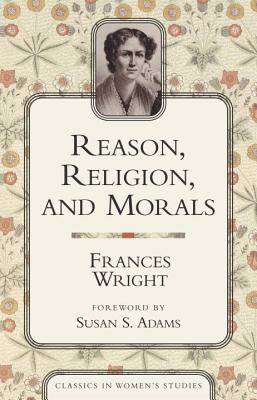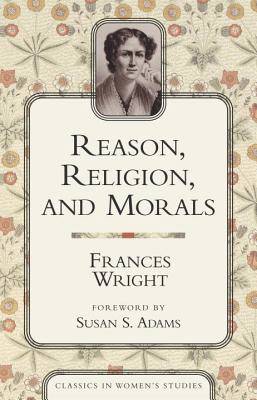
- Retrait gratuit dans votre magasin Club
- 7.000.000 titres dans notre catalogue
- Payer en toute sécurité
- Toujours un magasin près de chez vous
- Retrait gratuit dans votre magasin Club
- 7.000.0000 titres dans notre catalogue
- Payer en toute sécurité
- Toujours un magasin près de chez vous
27,95 €
+ 55 points
Format
Description
Originally published as Course of Popular Lectures, the works collected in this volume display the gift for oratory and range of progressive ideas that made Frances Wright (1795-1852) both a sought-after lecturer and a controversial figure in early nineteenth-century America. Born in Scotland, this pioneering freethinker and abolitionist emigrated to America in her twenties and became friends with Thomas Jefferson and James Madison. In 1828, she joined Robert Dale Owen's socialist community at New Harmony, Indiana, and helped him edit his New Harmony Gazette. The next year she and Owen moved to New York City, where they published Free Enquirer, which advocated liberalized divorce laws; birth control; free, state-run, secular education; and organization of the disadvantaged working class. It was at this time that she began delivering the popular lectures here collected. Some persistent themes that run throughout these well-argued pieces are: the importance of free, impartial inquiry conducted in a scientific spirit and not influenced by religious superstition or popular prejudice; the need for better, universal education that trains young minds in scientific inquiry rather than religious dogma; the advantage of focusing on the facts of the here-and-now rather than theological speculations; and the failure of American society to live up to its noble ideals of equality and justice for all. With an insightful introduction by Wright scholar Susan S. Adams (Emeritus Professor of English, Northern Kentucky University), these stimulating lectures by an early and little known feminist and freethinker will be of interest to students and scholars of women's studies, humanism, and freethought.
Spécifications
Parties prenantes
- Auteur(s) :
- Editeur:
Contenu
- Nombre de pages :
- 386
- Langue:
- Anglais
- Collection :
Caractéristiques
- EAN:
- 9781591022084
- Date de parution :
- 01-01-05
- Format:
- Livre broché
- Format numérique:
- Trade paperback (VS)
- Dimensions :
- 141 mm x 213 mm
- Poids :
- 517 g

Les avis
Nous publions uniquement les avis qui respectent les conditions requises. Consultez nos conditions pour les avis.






